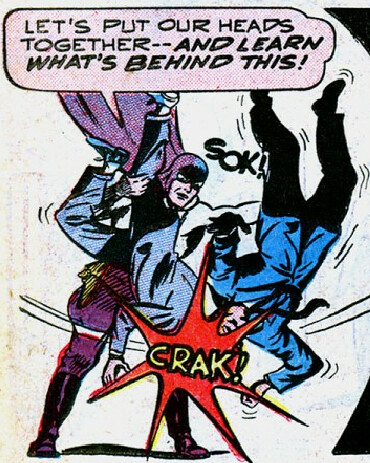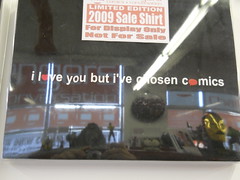 Much of this is going to be a bit rambling, and maybe a bit obvious to many of you. For me, it's trying to wrap my brain around quite a bit that's happening in nerd and "New Pulp" culture. This is less of an academic piece and more of a rant...but I'm willing to live with that, and I hope this either spurs on further conversation, and/or points me in the direction of current thought.
Much of this is going to be a bit rambling, and maybe a bit obvious to many of you. For me, it's trying to wrap my brain around quite a bit that's happening in nerd and "New Pulp" culture. This is less of an academic piece and more of a rant...but I'm willing to live with that, and I hope this either spurs on further conversation, and/or points me in the direction of current thought.Recently, there was news that Damen Lindelof would develop a Watchmen series for HBO....and something just broke in me. I actually found myself hating Watchmen in any form....
....and it's been frustrating to deal with friends and colleagues engage in full-on fan entitlement, complaining about the "design" of Star Trek: Discovery ("It doesn't follow the original show of 50 years ago!") to pulp characters that are over 80 years old ("If it doesn't fit the canon, it's not worth it.") (Or even a recent Doctor Who meetup where an attendee extended our venue time without my knowledge, insulted the venue, and basically disrupted the entire affair). It's even extended to Internet culture, with white dudebros on YouTube mocking the performance of the recent Ghostbusters reboot or claiming that a recent fan film settlement was out of line because this particular franchise "belongs to the people."
My first response is, "No it isn't - intellectual property". But the second - and more measured - response is a response to what I'm calling the "Nerd Paradox."

When we engage in any creative work or works, we develop an affinity for it - we like what we like and we dislike what we dislike. For many of us, that identification becomes so strong that it feels like that creative work (or franchise) "belongs" to us...and it doesn't. We own our reactions, our beliefs, our "feels" if you like....but we don't own the franchise. Part of building any franchise is taking risks: seeing what works and building upon it for modern times. If you're lucky, you get something that builds and expands upon the original (Battlestar Galactica); if you're not, you get....something else.
In addition, though, we crave the new and exciting. We want to see change (or more accurately, as Stan Lee once put it, "the illusion of change") yet somehow feel like our favorite franchises are still the same. (It would be strange if Doctor Who, for example, became a wacky sitcom about a chiropractor with short-term memory problems). There's a tension between being surprised in the same way when we first encountered this work and wanting the comfort of familiarity.
So the Nerd Paradox goes something like this:
"If you are going to make so many changes in this character/franchise, don't call it that franchise...yet, if you give me a new character that has too many changes from the old, why not just call it the old character".
Or, to use Star Trek as an example:
"Star Trek: Discovery looks like a bomb because they're not really following the design or continuity of the past series..." Yet, how many times have there been space operas/science fiction shows where someone has said, "It's enough like Star Trek...so why not call it Star Trek?"
Right now, the three major goals of any entertainment company are 1) Exploiting their existing intellectual properties (and "exploit" is not pejorative in this case); 2) Creating a "tentpole" franchise that is sustainable over several movies, and 3) planning out either trilogies or "cinematic universes" to foster that sustainability. Sadly, our media culture is moving away from originality into something that is more "bankable" and familiar....and unfortunately, the nerd paradox is still coming into play, and I don't really see a way out.
Yes, I've rambled for a bit, but mostly this is a "get-these-thoughts-out-of-my-head-and-on-the-blog" type of post. I'm more than happy to continue this conversation, and welcome your comments...especially if I'm either stating the obvious or just plain wrong about this.


No comments:
Post a Comment